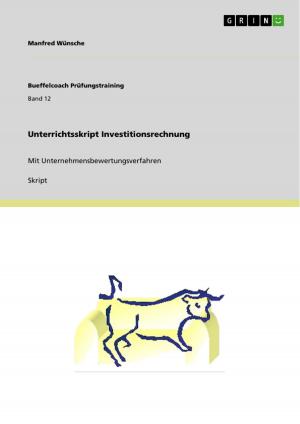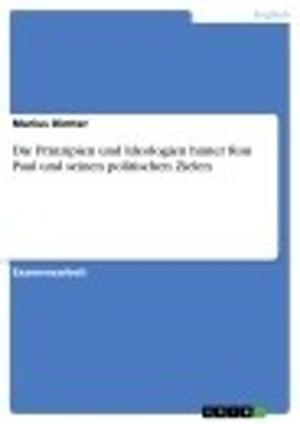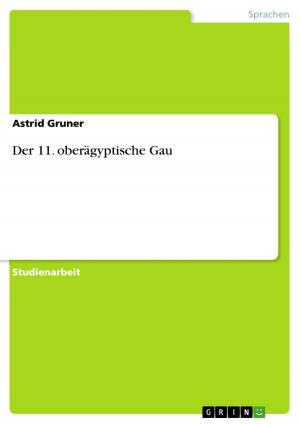'Leviathan' or the Discourse on Human Infallibility
Nonfiction, Social & Cultural Studies, Political Science, Politics, History & Theory| Author: | De Zhong Gao | ISBN: | 9783656152323 |
| Publisher: | GRIN Verlag | Publication: | March 14, 2012 |
| Imprint: | GRIN Verlag | Language: | English |
| Author: | De Zhong Gao |
| ISBN: | 9783656152323 |
| Publisher: | GRIN Verlag |
| Publication: | March 14, 2012 |
| Imprint: | GRIN Verlag |
| Language: | English |
Essay from the year 2012 in the subject Politics - Political Theory and the History of Ideas Journal, grade: 76%, McGill University, language: English, abstract: In this essay, I examine Hobbes' account of the state of nature and propose that the Hobbesian account of the sovereign's right to make decisions about what doctrines and beliefs be taught to his subjects is flawed. +++ Thomas Hobbes's discussion of the state of nature is necessary to understand the nature and powers of the sovereign in a commonwealth. A commonwealth is a person, or a group of men who defend people from foreigners and from the injuries of one another, and compel their performance to their covenant by fear [Penguin Classics edition's page numbers].1 This essay argues that Hobbes's claim that the sovereign has the power and right to judge what opinions and doctrines are fit to be taught is flawed because the sovereign's judgment can be erroneous and consequentially provoke grievances, resulting in civil war. To do so, I will first examine how according to Hobbes's fundamental law of nature, men endeavour to live in peace, justifying the need for a commonwealth and sovereign to have power and the right to judge what opinions and doctrines are fit to be taught. I will also explain how the sovereign's right to make judgments helps men to avoid the state of nature. Then, I will analyze how the sovereign can make erroneous judgments, resulting in abuses of speech and dissidence. Finally, I will refute the challenging counter-argument to my thesis, which claims that erroneous doctrines are subjective, for neither the sovereign nor his subjects can realize that erroneous doctrines have been made. [...]
Essay from the year 2012 in the subject Politics - Political Theory and the History of Ideas Journal, grade: 76%, McGill University, language: English, abstract: In this essay, I examine Hobbes' account of the state of nature and propose that the Hobbesian account of the sovereign's right to make decisions about what doctrines and beliefs be taught to his subjects is flawed. +++ Thomas Hobbes's discussion of the state of nature is necessary to understand the nature and powers of the sovereign in a commonwealth. A commonwealth is a person, or a group of men who defend people from foreigners and from the injuries of one another, and compel their performance to their covenant by fear [Penguin Classics edition's page numbers].1 This essay argues that Hobbes's claim that the sovereign has the power and right to judge what opinions and doctrines are fit to be taught is flawed because the sovereign's judgment can be erroneous and consequentially provoke grievances, resulting in civil war. To do so, I will first examine how according to Hobbes's fundamental law of nature, men endeavour to live in peace, justifying the need for a commonwealth and sovereign to have power and the right to judge what opinions and doctrines are fit to be taught. I will also explain how the sovereign's right to make judgments helps men to avoid the state of nature. Then, I will analyze how the sovereign can make erroneous judgments, resulting in abuses of speech and dissidence. Finally, I will refute the challenging counter-argument to my thesis, which claims that erroneous doctrines are subjective, for neither the sovereign nor his subjects can realize that erroneous doctrines have been made. [...]















